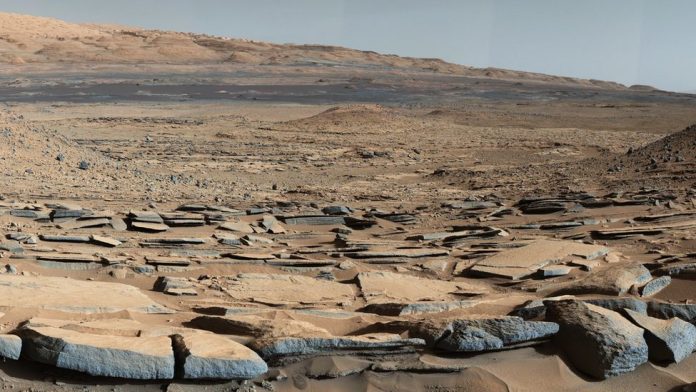Several oceans’ worth of ancient water may reside in minerals buried below the surface of Mars, researchers have suggested.
A new study indicates that much of the red planet’s initial water – up to 99% – became trapped in its crust, not lost in escape to space.
Ancient Mars was a wet planet, with now dry riverbeds and relic shorelines recording a time when vast volumes of liquid water flowed across the surface.
Today, very little of that water remains and is mostly frozen in the planet’s ice caps.
Previous studies have assumed the lost water escaped to space over several billion years.
However, researchers say measurements of the current rate of atmospheric water loss are too low for this alone to explain all Martian water loss.
Using measurements gathered from rovers, meteorites and spacecraft orbiting Mars, researchers developed a simulation of how water was lost.
According to the study published in Science, the researchers discovered that Mars had lost most of its water – between 40%-95% – over the Noachian period, around 4.1 to 3.7 billion years ago.
They say the results suggest that between 30% and 99% of Mars’ initial water was incorporated into minerals and buried in the planet’s crust, with subsequent escape to space of the remainder accounting for the currently observed deuterium to hydrogen ratio (D/H).
The authors write: “Between 30% and 99% of Martian water was sequestered by crustal hydration, demonstrating that irreversible chemical weathering can increase the aridity of terrestrial planets.”













